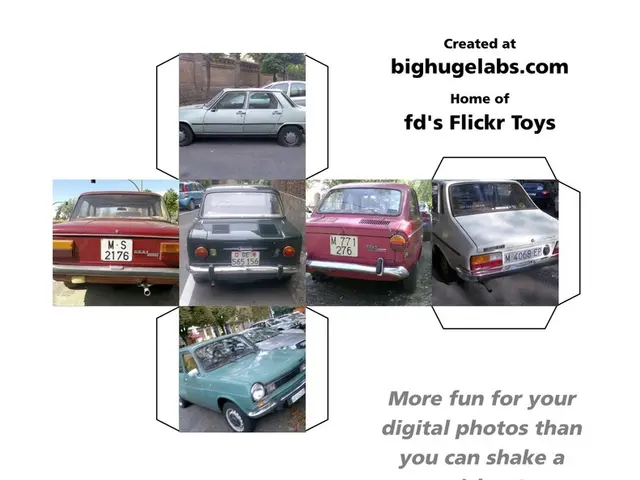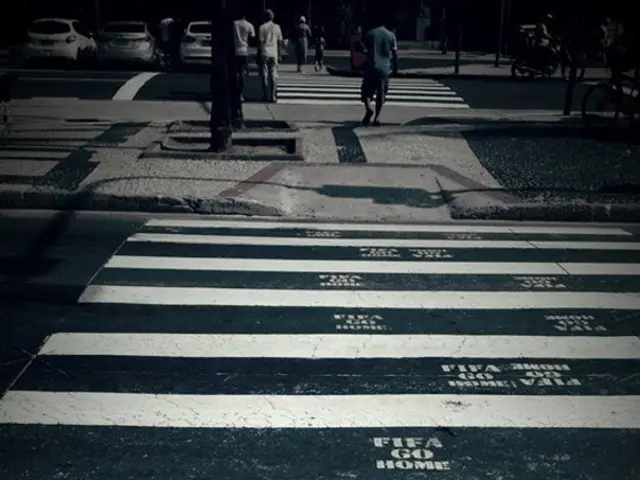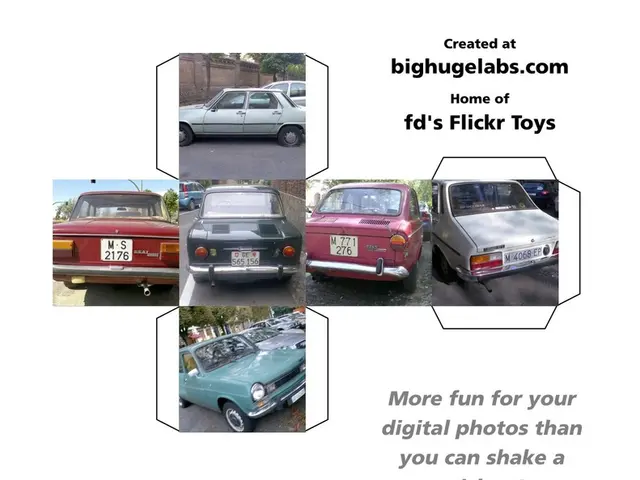A Car's High Cost: Why It May Fail Its Main Inspection
By Christian Hensen
- ⏱ 3 Min Read
Cars fail TÜV examinations due to minor defects found during the inspection process. - Due to minor flaws, vehicles fail TÜV inspections
Last year, approximately 20% of cars failed their main inspection. Only 67.8% managed to pass without any flaws. But guess what? It's not rocket science to obtain a brand-new sticker for your vehicle on the first try and dodge costly re-inspections.
In principle, there are four categories of issues that inspection agencies, such as TÜV, Dekra, or GTÜ, look for. Cars with "no detected issues" have it the easiest—the sticker is issued, and that's it. Often referred to as "minor issues," these can include minor scratches on the mirror or a defective license plate light. If these issues are identified, they are noted on the inspection report and require immediate repair—without another inspection. These minor issues can be seen as a kind gesture, provided your car doesn't accumulate too many minor problems.
From Minor to Major Headaches
However, "serious issues" are a different story: If the tires are worn out, the brakes are faulty, or supporting parts are rusty, your car will fail. You will then be given four weeks to resolve the issues and return for another inspection. During this grace period, you can operate the vehicle. If the necessary repairs are certified upon your return, your vehicle will receive a sticker once more.
In the most extreme case, the so-called "dangerous issues" will keep you from receiving a sticker. If the inspector discovers defects that could "immediately and directly endanger traffic safety or the environment," the sticker will be denied. Furthermore, if a "dangerous situation" is noted in the inspection report, the vehicle may only be driven home or to the workshop. Within one month, the car can be presented again. If all is in order, you'll receive a sticker.
However, if the inspector detects an "immediate danger to traffic," the vehicle may even be immobilized on the spot. In such cases, driving on public roads is immediately off-limits. This might happen if the brakes or steering systems are defective, or the chassis is severely rusted.
Drive a Defect-Free Car Right Away
So, how can you dodge a re-inspection and obtain your new sticker immediately? This isn't much of a secret—the TÜV offers checklists for that. Some things require only a cursory examination, while others are quite simple to verify. For example:
- Do all lights on your vehicle, inside and out, work?
- Are all glasses (headlights, windows) free from damage?
- Do windshield wipers and washer fluid work?
- Does the car brake as intended?
- Does the horn work?
- Is the engine compartment "dry"?
- How deep is the remaining tire profile?
- Are the warning triangle, warning vest, and first aid kit with a valid expiration date in the car?
- Do any warning lights illuminate during the drive?
- In case of performance upgrades: Do you have all the necessary documents?
If everything checks out, you stand a good chance of nailing a successful inspection right away. It's easier to have the sticker issued as part of a routine inspection. If your car is already at a workshop, it's more likely they'll detect and repair any issues before the inspector arrives—then you can relax and cross off the checklist.
There are also peculiarities during the main inspection that you might not consider and that aren't listed on the checklists. For example, so-called blind-spot mirrors to attach to your vehicle mirrors. The inspector will always ask you to remove these. Or, as "Auto Bild" reports, a missing sun visor in convertibles. In that case, a minor defect could result.
Inspectors dislike tinted window films, painted headlight covers, or seemingly matched LED lights without authorized approval for the respective vehicle.
- TÜV
- Car
- Vehicle
- Main Inspection
Additional Insights:
Vehicle owners would benefit from understanding the most common reasons for failing inspections, such as minor lighting faults, tire wear issues, brake problems, exhaust leaks, and the illuminated Check Engine Light. Employing the TÜV's guidelines to fix these issues, maintain the vehicle regularly, and perform pre-inspection checks can help avoid re-inspections and keep the car passing the main inspection. Some of the common defects that cause cars to fail these inspections include:
- Minor Defects: Lighting problems, minor tire defects, and outdated inspection documents.
- Serious Defects: Issues with the brake system, suspension, or exhaust system.
- Dangerous Defects: Severe brake failures, suspension or steering defects, and major structural damage or frame issues.
References:
[1] Toitzo, K. (2020, September 24). Avoiding Re-Inspections. Retrieved from https://www.toitzo.com/blog/de/avoiding-re-inspections
[2] Garage Revolution. (2021, March 05). 12 Common Reasons Vehicles Fail Main Inspections - How to Prepare for Your Inspection. Retrieved from https://www.garagerevolution.com/blog/12-common-reasons-vehicles-fail-main-inspections-how-to-prepare-for-your-inspection
[3] AutoZone. (n.d.). Vehicle Inspection. Retrieved from https://www.autozone.com/autozone/vehicle-inspection
[4] TecAp. (n.d.). Check Engine Light. Retrieved from https://tecap.com/us/diagnostics/what-is-the-check-engine-light
[5] Bosch. (n.d.). Troubleshooting Common Car Lights Issues. Retrieved from https://www.boschautoparts.com/us/diagnostic-service/learn-more/common-car-lights-issues
- To ensure a car passes its main inspection, understanding community policy on vehicle inspections is crucial, particularly the common reasons for failures such as minor lighting faults, tire wear issues, brake problems, exhaust leaks, and a lit Check Engine Light.
- Vocational training in automotive care and car-maintenance could be beneficial for vehicle owners, as it would enable them to identify and address these issues before the main inspection occurs, thereby reducing the likelihood of re-inspections.
- Financial considerations are important when preparing for a car's main inspection, as the cost of repairs for serious or dangerous defects can be substantial. Thus, setting aside a budget for potential repairs and routine maintenance is advisable to ensure a successful inspection.
- The transportation industry could benefit from implementing vocational training programs in partnership with inspection agencies to train workers in the detection and correction of common vehicle defects, potentially leading to more efficient inspections and fewer re-inspections, and thereby improving overall traffic safety.








